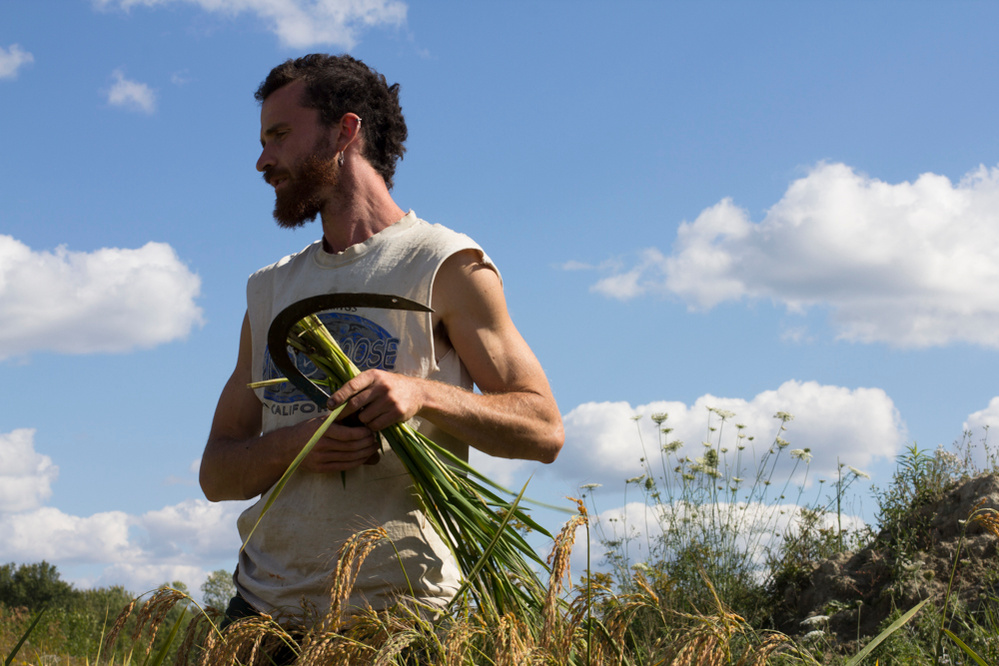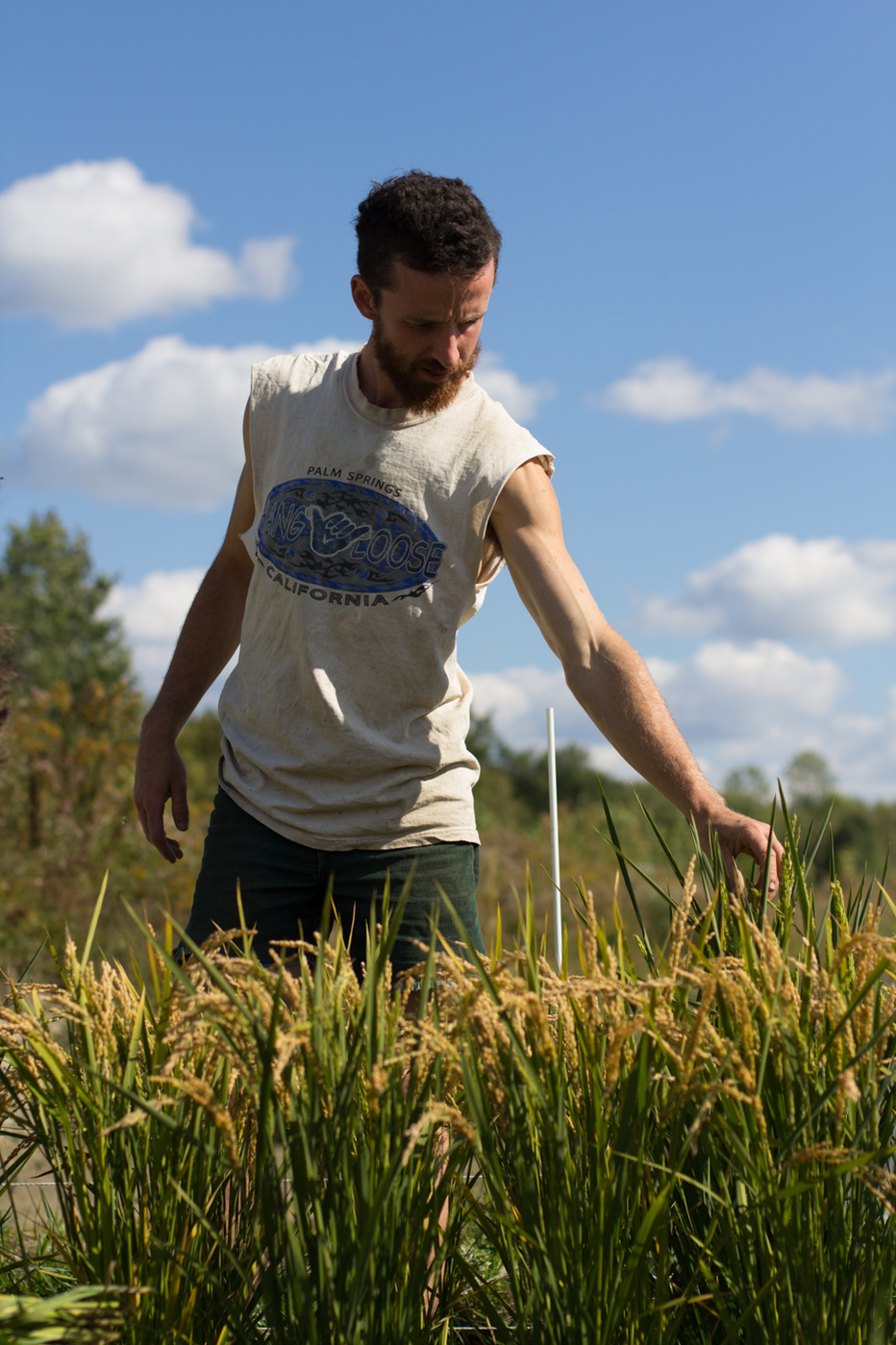Can a small-scale farm function as a closed circuit outside of petroleum-fed industry? Ben Rooney and other seasonal farmers try to address this question as they expand Wild Folk Farm in Benton, Maine. Located on what the agricultural world calls marginal soil, the farm has had a successful season of growing rice, and is now enlarging their test rice paddy to span an acre of land. However, to level the paddy by hand, and be in keeping with their fossil-fuel-free ideals would take over a year according to Ben. The farm had to compromise money, the environment, and their philosophies in order to grow.











